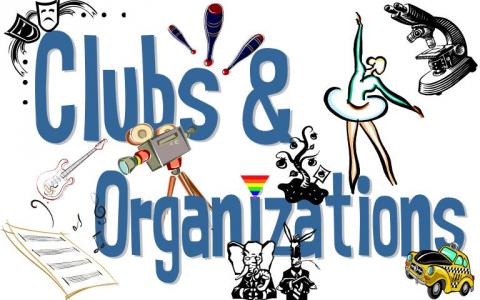How Do I Reduce and Repay Credit Card Debt?
Aug 23,2023
Approximately 65% of college students have credit card debt to some extent. The average college student has over $3,000 worth of credit card debt.
Did college life land you in debt? If so, you might be looking for some help in paying off your credit cards. Fortunately you've come to the right place.
Below, we're going to provide you with several tips to help you repay credit card debt. Put these into action and, soon enough, you'll be in good financial standing.
Consolidate
Our first piece of advice is to consolidate. This means taking all of your sources of debt and bringing them together into one big chunk of debt. There are many benefits to doing this.
For one, consolidation makes it so that you only have one payment to make every month. You don't need to log into several different accounts. You can pay all your debt from a single account.
In addition, consolidation often enables you to score a lower overall interest rate. When your interest rate is lower, you end up paying less in the long run. This might even lower your overall monthly debt payments, freeing you up to spend money in other areas.
Finally, consolidation might improve your credit score. This not only enables you to take out other important loans but it also helps lessen the psychological pressure of debt.
There are all sorts of debt consolidation companies out there. You can find them by searching "debt consolidation" on Google. If you have a fairly good credit score, they should consolidate your debt at a low interest rate.
You can learn more about debt consolidation by clicking here.
Use a Balance Transfer Credit Card
Another way to reduce your debt owed is to transfer your debt to a balance transfer credit card. This is a 0% interest credit card that enables you to hold debt for upwards of 2 years. Note, though, that once this initial period is over, a higher interest rate applies.
The key here is to look for a credit card with 0% interest balance transfers, specifically. Make sure there are no fees attached to balance transfers either. If you can find a credit card of this type, you can lower overall interest rate immediately and to a fairly substantial extent.
Once you've transferred your debt to this card, make sure you don't use the card for additional spending. In fact, it might be a good idea to throw away the physical credit card. This way, you won't be tempted to use it while in stores, restaurants, and the like.
You can find balance transfer credit cards by simply Googling "balance transfer credit cards". There should be quite a few options available out there.
Speak With Your Credit Card Companies
The interest rates on your credit cards are established by your credit card companies. As such, if your credit card companies wish, they can lower your interest rates.
This is why, if you're in the process of paying off credit card debt, you should make a call to your credit card company and discuss having the interest rates lowered. While they might not be receptive, they very well could be. It's not uncommon for credit card companies to lower their customers' interest rates upon inquiry.
Of course, the advantage of a lower interest rate is that you'll have less interest accumulating over time. This is advantageous, as you'll more easily chip away at your balance and will ultimately pay less in the long run.
Borrow Money from Friends/Family
If you can, you should borrow money from friends/family. This money will, in all likelihood, come with 0% interest. As such, it will enable you to drastically reduce the overall amount of what you have to pay.
You don't necessarily need to get a large sum from a single person. You can get small sums from many different people. That way, people will be more willing to help you out.
That said, you need to make note of everyone you've borrowed from, along with the amount you borrowed from each person. You don't want to risk not paying someone back. Failing to do so could hinder your relationship with that person.
Start With Your Highest-Interest Debt
The higher the interest of the credit card, the more debt it's going to accumulate over time. This is why, if you fail to consolidate your debt, you should pay off the highest-interest debt first. Doing so will keep your overall expenditures to a minimum.
Of course, you should also keep total balances in mind. If one credit card's balance is thousands of dollars higher than another's, you should devote more money to the one with a higher balance, regardless of its interest rate. This is because higher balances wind up with higher interest accumulated, even with relatively low interest rates.
Once you've evened out your credit card balances, however, you should focus on the higher-interest card. Pay the minimum on all of the others while paying well over the minimum on this card.
Consider Eliminating Small Balances
Eliminating debt isn't just a logical practice. There is a great deal of psychology involved in it as well. Seeing huge balances spread across 3 or 4 cards can feel intimidating.
This is why, in some cases, it can be beneficial to eliminate the debt on a single card before moving on to the next one. Dropping that one card out of the race entirely can feel freeing and thus give you the boost of confidence you need to press on and eliminate further debt.
In some cases, when a person doesn't do this, they become discouraged and fall back into bad habits. This results in even greater debt and, thus more trouble paying that debt off.
Take Up a Side Gig
You need money to pay off debt. The only reasonable way to get money is to earn it. So, if you're struggling to pay off your debt with your regular job, you're going to have to supplement it with a side gig.
There are all sorts of side gigs out there these days. You could become a dog walker, take up freelance writing, work in a factory part-time, and much, much more.
You don't necessarily even need to make that much more money. Even an extra $100 a month could go a long way in combatting your debt in the long run.
Cut Back on Non-Necessary Expenditures
You have your necessary expenditures. These include things like rent, utilities, gas, groceries, and the like.
Then, you have your non-necessary expenditures. These include things like meals out, drinks at the bar, vacations, and even brand-name coffee on the way to work.
If you want to pay your debt off as quickly as possible, you need to keep the latter expenditures to a minimum. Drink coffee at home instead of coffee from Starbucks; eat at home instead of in restaurants; don't go on vacation this year.
Yes, you'll have to sacrifice. However, the more you sacrifice, the quicker you'll pay your debt off, and the sooner you can get back to normal.
Cut Up Your Credit Cards
We also advise cutting up your credit cards. This way, you'll have no ability to use them while at grocery stores, restaurants, bars, and the like. If you aren't able to use them, you can't go further into debt, which will aid you in the long run.
Now, this isn't to say that you literally need to cut up your credit cards (though you could). However, you should, at the very least, hide them somewhere. Keep them away from you as much as possible so that you can avoid temptation.
Ask for a Raise
Raises are a customary part of working for a company. If you're not receiving raises on at least a yearly basis, you're not being treated right, and should seek employment elsewhere.
This is why, if you're in the process of paying off credit card debt, you should ask for a raise from your employer, especially if you've been with the company for more than a year. The extra money provided by a raise could make a world of difference when it comes to paying off your credit cards.
Even if it's just an extra $20 a week, that's still over $80 a month. Over the span of a year, that's $960 that you can contribute to cutting down on credit card debt.
Find Cheaper Hobbies
Hobbies are a necessary part of life. Without them, life feels unfulfilling. As such, we would never advise giving up hobbies completely.
That said, if you have a particularly expensive hobby, it's not going to jibe with paying off credit card debt. In this scenario, we strongly advise searching for cheaper hobbies.
For instance, maybe you like to purchase old guitars and refurbish them. This is a fulfilling endeavor, but it's also expensive.
Instead, you could make a YouTube channel where you discuss the guitars you've already refurbished. You could record your videos with your phone so as not to incur any additional costs. This would enable you to engage in your hobby without taking sizeable monetary losses.
It doesn't have to last forever. Just put your main hobby on the back burner until you're in a better financial situation. Once you're caught up on your debt, you can pursue your old hobbies with full force.
Find a New Job
You could ask for a raise. However, even if you're able to obtain one, it likely won't be substantial. In truth, if you really want to make more money, you should find a new job entirely.
When you come into a job fresh, you come with all of the experience that you accumulated in your past job. As such, you're taken more seriously and can command a higher salary. You might even be able to level up to a new position, giving you the potential to increase your annual income by tens of thousands of dollars.
This obviously bodes well for paying off your credit card debt. The more money you earn, the more you can throw at your credit cards, and the quicker you'll pay them off. The quicker you pay them off, the less interest they'll accumulate and the less money you'll need to devote to them in the long run.
Get a Summer Job
Are you going into college for the first time? Maybe you're already a college student? If so, you might view summer as a time for relaxation.
That's all well and good, but if you're solely relaxing throughout the summer, you're missing out on great income opportunities. After all, summer break gives you all the time in the world. If you're not capitalizing on this time with some sort of a summer job, you're only cheating yourself.
Ideally, you'll find an internship that aligns with your major. However, even if you can't, you can almost certainly find employment as a landscaper, factory worker, server, bartender, etc.
Live With Roommates
Our last piece of advice is to live with roommates. Living with roommates is almost always cheaper than living alone. In fact, in most cases, the more roommates you have, the less money you'll have to spend monthly for rent.
Let's say you're paying $700 for a studio apartment. You could instead rent a two-bedroom apartment for $1,100 with a roommate. All of a sudden, you're paying $550 a month instead of $700 a month. That's $150 worth of savings every month, all of which you can devote to your credit card debt.
Let's say you rent a 3-bedroom apartment for $1,400 and split the rent with 3 roommates. Now, you're only paying around $467 a month. You get the point; savings are available when you get roommates.
Combat Credit Card Debt By Obtaining Financial Scholarships
Looking to contribute more money to your credit card debt by contributing less money to your college experience? If so, you should apply for financial scholarships.
We have a variety of them available here at the Honor Society. Whether you're a college freshman, sophomore, junior, or otherwise, there are funding opportunities for you to pursue. Obtaining even a single one can make a seismic difference when it comes to paying off your credit card.
Check out our selection of scholarships now!





